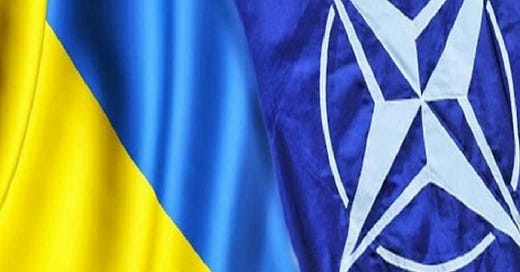Why’d Biden Just Discredit Inside Sources Who Said He’d Fast-Track Ukraine’s NATO Membership?
Observers shouldn’t be misled by this scandal into thinking that it implies the bloc’s lack of commitment to that country.
Biden threw a curveball on Saturday after telling reporters that he won’t “make it easy” for Ukraine to join NATO, which followed separate inside sources told the Washington Post and then Axios that he was in favor of Stoltenberg’s proposal to waive that country’s Membership Action Plan (MAP). There are only two mutually exclusive explanations for what just happened: either these inside sources lied all along or Biden unexpectedly changed his mind in the days since they leaked his reported stance to the press.
Regarding the first scenario, those inside sources might have lied in order to pressure him and his advisors to take up that policy after the public falsely came to expect that he already supposedly did. That version of events would thus suggest that he isn’t comfortable bringing Ukraine into this US-led bloc, hence the need to try and manipulate him through information warfare. If that’s what really happened, then it clearly failed as proven by his latest statement about this.
The second scenario, meanwhile, implies that something happened to make him and his team second-guess the wisdom of having allegedly approved fast-tracking Ukraine’s NATO membership. The only relevant event that occurred in the past few days was President Putin’s keynote speech at the St. Petersburg International Economic Forum on Friday, during which time he informed the world about how badly Kiev’s NATO-backed counteroffensive had failed.
It could also have been that these reports triggered fierce pushback from those NATO members who were already informally opposed to Ukraine joining the bloc in the first place, which would have made it impossible to achieve the presumably required consensus for scrapping its MAP. In that case, Biden would have had to reverse course in the event that he initially supported this plan in order to avoid being embarrassed by having it rejected during next month’s summit.
Whatever the reason may be for him discrediting those inside sources who recently claimed that he supported fast-tracking Ukraine’s NATO membership, observers shouldn’t be misled by his latest words into thinking that they imply the bloc’s lack of commitment to that country. It’s already an unofficial member that’s been armed to the teeth as their anti-Russian proxy, plus there’s a high likelihood that this military relationship will be formalized and possibly even expanded during next month’s summit.
Macron already proposed extending some form of “security guarantees” to Kiev while Biden is reportedly in favor of replicating the so-called “Israel model” of time-limited military support. The question of this former Soviet Republic’s membership in NATO is therefore a moot point in practice since its newfound military relationship with some of the bloc’s leading members isn’t going to change. For that reason, the latest scandal over its future ties with this anti-Russian bloc is just a distraction.




